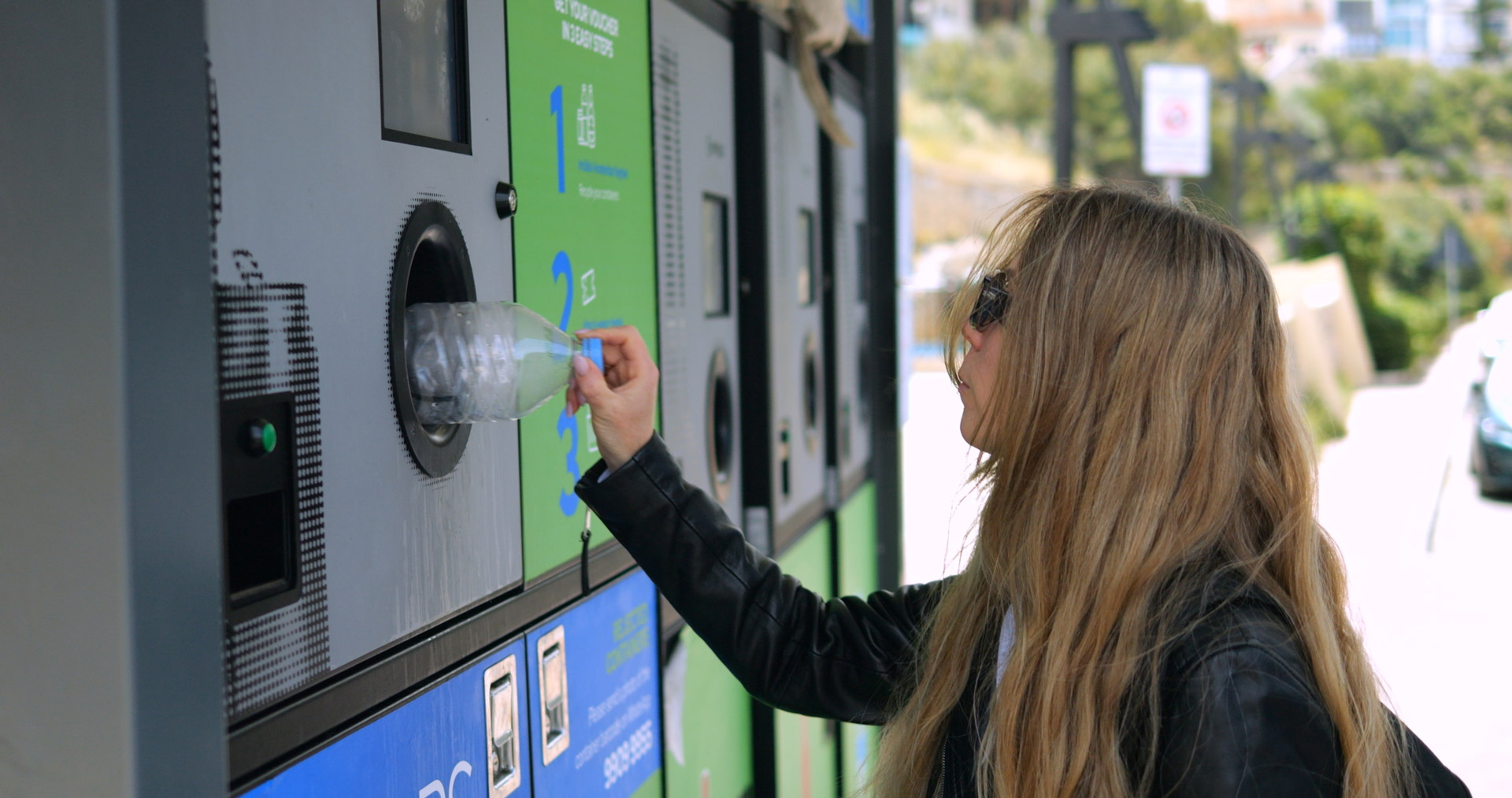Scottish college launches reverse vending machine trial offering 20p per bottle
A four-week pilot at New College Lanarkshire will test whether financial rewards can increase student recycling rates and provide insights for Scotland's deposit return scheme in 2027.
 Students at New College Lanarkshire can earn 20p for every can or plastic bottle returned through reverse vending machines (RVMs) in a deposit return scheme trial.
Students at New College Lanarkshire can earn 20p for every can or plastic bottle returned through reverse vending machines (RVMs) in a deposit return scheme trial.
Environmental charity Keep Scotland Beautiful is partnering with the college and Coca-Cola Europacific Partners (CCEP) to assess how personal financial incentives influence recycling behaviour among students. Insights from the four-week study will inform the rollout of Scotland's Deposit Return Scheme (DRS) in October 2027.
Students can spend their earned credits in campus canteens in Motherwell, Coatbridge and Cumbernauld.
The machines use automated material identification and sorting technology to separate materials into different streams, thereby preventing cross-contamination with general waste.
Three student households will also document their experience with the Deposit Return Scheme over two weeks, providing insights into practical and behavioural barriers to adoption.
The initiative builds on learnings from a previous campaign between the charity, CCEP and the University of Strathclyde, which tested various interventions to encourage student recycling behaviour.
Half of the 200 participating students felt financial incentives would encourage them to recycle more. The previous study used donated charitable rewards rather than direct financial benefits.
Barry Fisher, Chief Executive at Keep Scotland Beautiful, said: "We've learned from previous campaigns what encourages positive recycling behaviours by students and hope that this 20p incentive will motivate more people to recycle plastic bottles and cans."
The earlier University of Strathclyde trial collected 478 recyclable items over eight weeks but highlighted the need for consistent communications around reverse vending machines to help people understand their benefits.
Jo Padwick, Senior Sustainability Manager at Coca Cola Europacific Partners GB, said: "Giving students the chance to live with a Deposit Return Scheme - something that will soon be a part of everyday life - will allow us to see first-hand how people interact with RVMs in reality."
Preparing for national rollout
Scotland's DRS was originally planned to launch ahead of the rest of the UK but faced delays due to legislative challenges from the UK Internal Market Act. Established post-Brexit, this act aims to ensure that goods can be sold with the same rules across the UK, preventing different regulations in each country from creating trade barriers.
This prompted the removal of glass containers from the Scottish scheme and postponed the launch until October 2027, to align with England and Northern Ireland. Wales is developing separate plans for its own DRS.
The UK government estimates 36,750 reverse vending machines will be required for full UK implementation. Reverse vending machines are already operating in limited trials across the UK. Sainsbury's recently trialled glass acceptance alongside plastic and aluminium at its Newbury store, while Iceland pioneered RVM technology in UK supermarkets from 2018.
Keep Scotland Beautiful has previously run successful recycling campaigns with Clackmannanshire Council, Falkirk Council, Stirling Council and Forth Valley College to increase on-the-go recycling rates.
New College Lanarkshire Deputy Principal Ronnie Gilmour said: "We are delighted to be a partner on this initiative. We know that living in a clean and sustainable environment is very important to our students."





